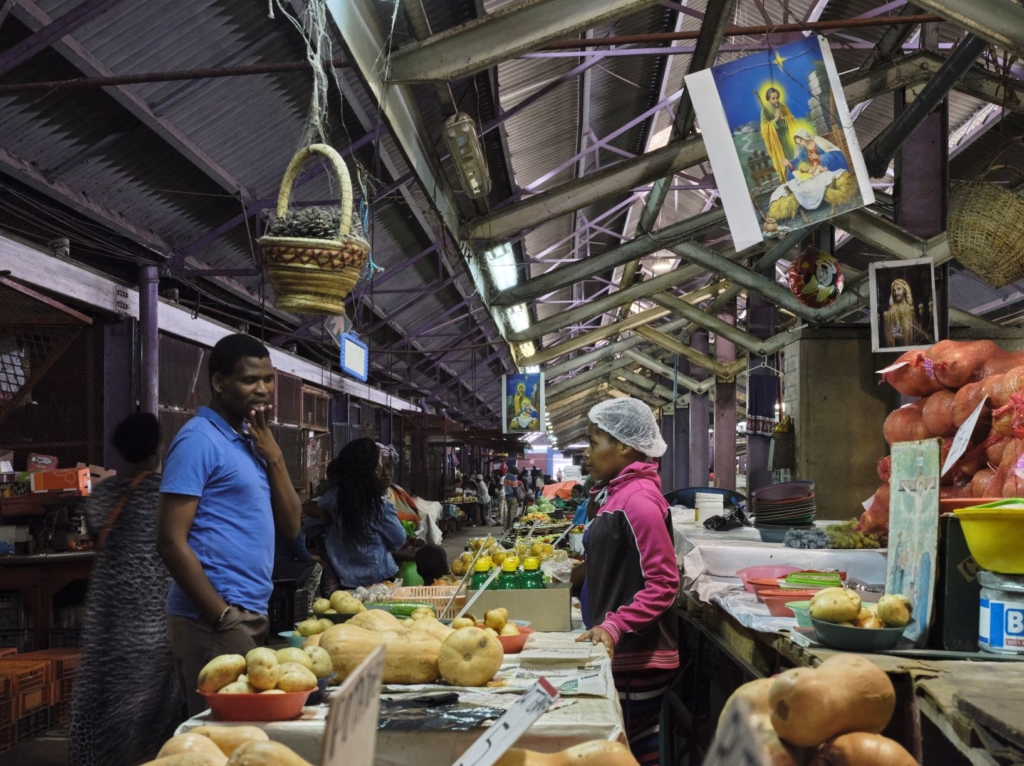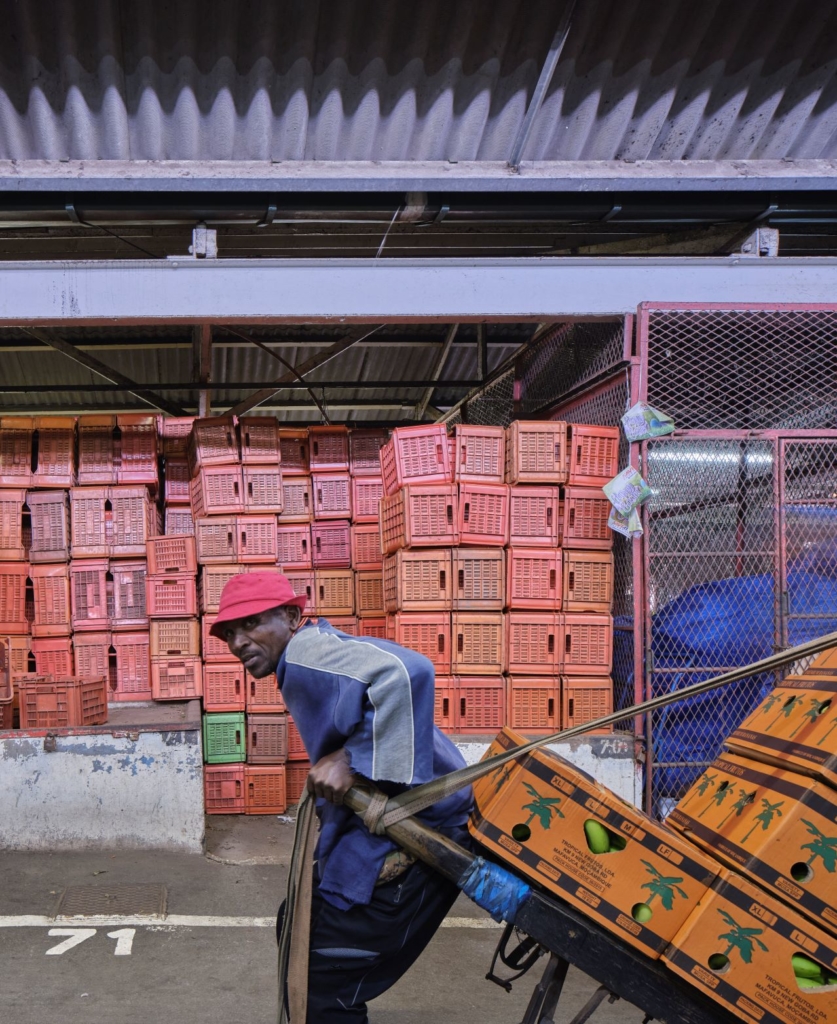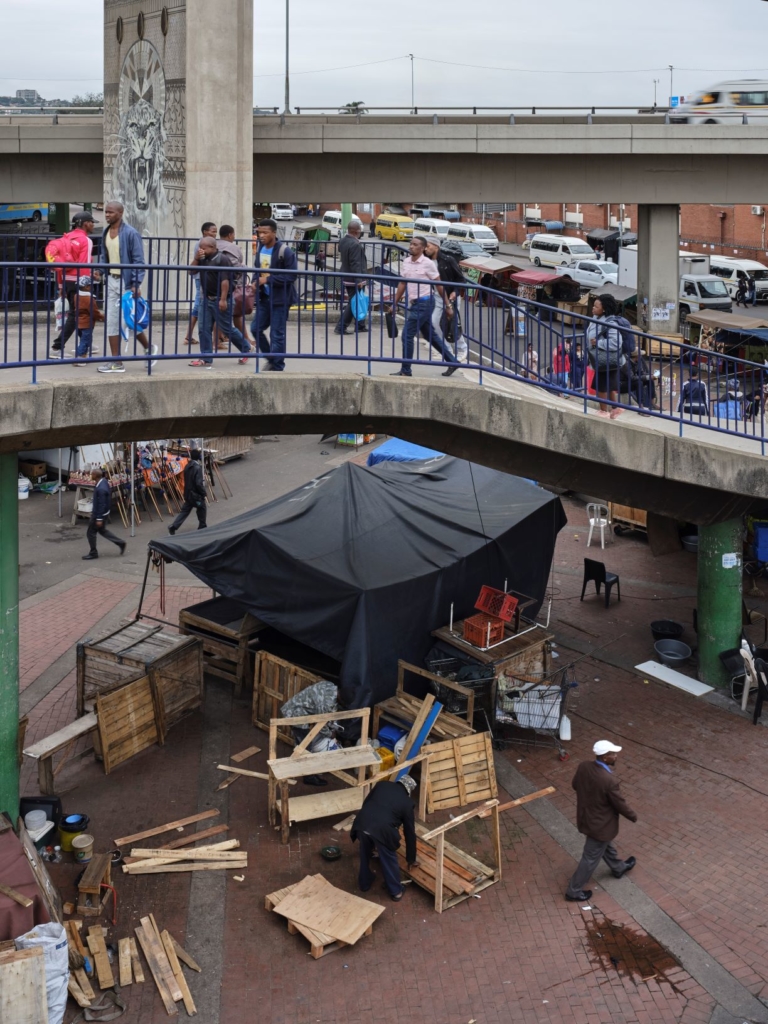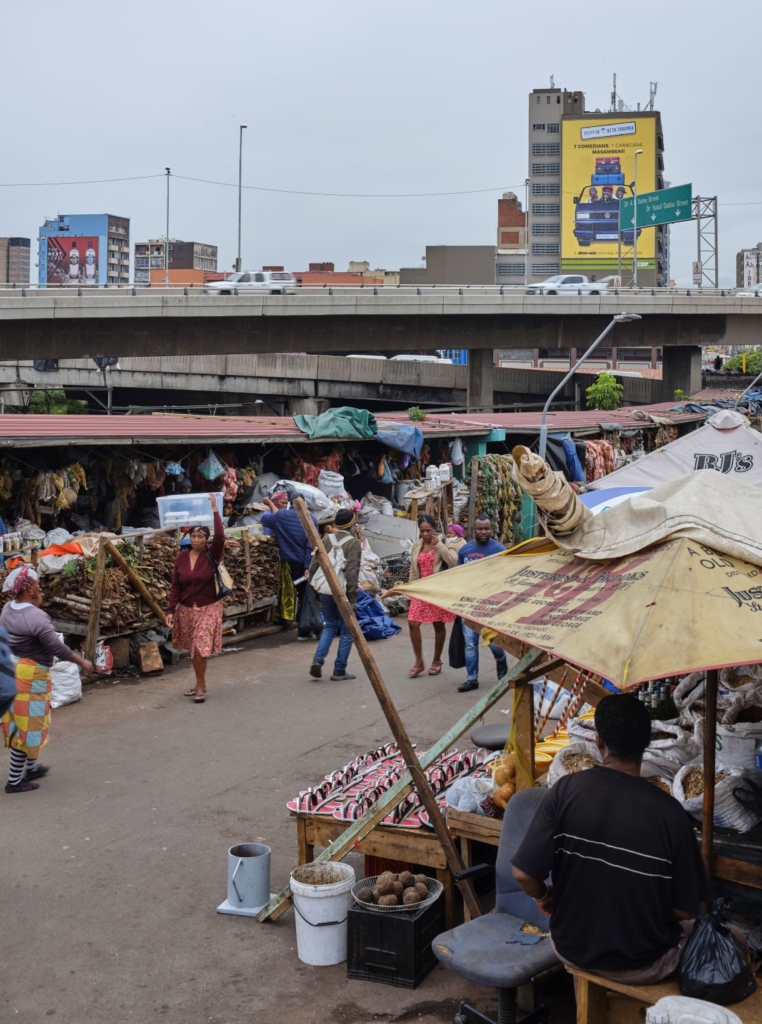Sarah Heneck
The post festive-season glow was evidently lacking in Warwick Junction in January 2020. We interviewed a number of traders in a number of the different markets and while some traders were able to proudly say that they had had a fantastic December, the majority of traders in our sample were quick to say it was their ‘worst December ever.’
An article published by WIEGO highlights the fact that the informal economy is often regarded as a ‘safety net’ to which people migrate during times of economic crisis when jobs are scarce in the formal sector. This is certainly true in many instances, however, as the article points out, this is not the case for everyone and many micro-businesses in South Africa suffer just as much during economic downtimes as businesses in the formal economy do. Furthermore, the rise of technology affects informal businesses as well as formal ones. The following stories give an indication as to what is currently going on, on the streets of Warwick Junction.
A man who has made a living selling CD’s on the streets for many years is now saving up to get his drivers license so that he can become a minibus-taxi driver (another informal sector job). His industry has just about collapsed; a few years ago he would make around R500 (USD 35) per day during the year and then up to R2000 (USD 135) per day during the festive season. Now he makes around R60 (USD 4) on a normal day and is lucky to make R200 (USD 14) over the holidays. He notes that people now have other, cheaper ways of accessing music, such as downloading it from music platforms, which is making his CD business redundant.
An elderly lady who lies next to a huge pile of second-hand clothes outside the Early Morning Market said that she expected to sell the entire pile of clothes during December but her customers have hardly made a dent in it. She was able to raise 3 children and build her own house from the profits from this business, however, she has been noticing her sales declining since 2009. She thinks that South Africa is heading for disaster because there are very few opportunities here; 2 of her children are unemployed so although her business is no longer lucrative, she needs the small income that she gets from it to help support them as well as her grandchildren. The traders around her who are selling fruits and vegetables sold so much less stock than expected In December that they had to throw piles and piles of it in the bins.

Market Trader in the Early Morning Market. 
Warwick Junction, Durban.
Barrow-operators, who are some of the less visible informal workers in the Warwick Junction area, are also struggling. Their job consists of transporting goods from storage to traders’ stalls or from suppliers to traders, using barrows on which they can move up to 600 kilograms of stock at a time. When business is slow for the traders, business is slow for the barrow operators. One of the men we interviewed noted that traders are buying goods in smaller amounts, so their services are not as frequently required. He said that he used to do ‘countless’ trips in one day but now he sits around waiting a lot of the time. He entered the informal economy after being retrenched from the mines and he is not aware of any other work opportunities so he will continue to try and make ends meet as a barrow operator.
In Brook Street, the market is always bursting with colour from the pinafores that are on display there in abundance. According to one informal trader, none of the pinafore sellers had good December sales. It is quite clear that business is still extremely slow because a number of the traders were asleep at their stalls when we walked through the market. This particular trader said that she would be sleeping too if she didn’t have her friend keeping her company. She says that the only reason she is coming to work anymore is so that she stays fit and healthy; she does not want to sit at home all day.
Although these stories paint a bleak picture, Warwick Junction is still home to many entrepreneurs who continue to thrive. One trader who sells a traditional detox mixture proudly showed us pictures of the house she has just put the finishing touches on, after she made R1000 (USD 68) per day throughout December (as she has been doing for many years). The traders selling straw mats said that this festive season was better than usual for them; their mats are used for traditional wedding ceremonies and there happened to be a lot of weddings this December. Also, a man who fits gold caps onto his customers teeth said that he had not noticed anything different about this December in comparison to other years and was very happy with his sales.

Barrow-operator. 
Carpenter at work. 
Herb Market.
Our sample size was small and more in-depth research is required in order to better understand what is going on. However, is it safe to say that the informal economy is complex and dynamic and there are a number of reasons which can explain why some of the Warwick Junction informal workers are struggling. The informal economy has many ties to the formal economy and if people in formal jobs are struggling, it is unsurprising that some of those in informal jobs will be struggling too, because the two economies are interlinked. Therefore, it is imperative that government makes an effort to support and protect informal worker livelihoods as much as they do formal jobs, particularly in times of economic hardship, as the informal economy has clearly demonstrated that it is vital but not unshakeable. The informal economy will continue to provide the only route out of poverty for an ever increasing number of people who cannot access formal employment but it cannot be expected to thrive in a faltering economic environment (alongside the changes that the fourth industrial revolution has brought and continues to bring) without support.
All the images featured in this article are by Dennis Gilbert http://www.dennisgilbert.com/ , a long-standing supporter of AeTs work in Warwick Junction.
[Feature image: Brook Street Market by Dennis Gilbert by permission Asiye eTafuleni]
*If you would like to support the ongoing work of AeT please contact us. Find AeTs contact details at the bottom of this page.


